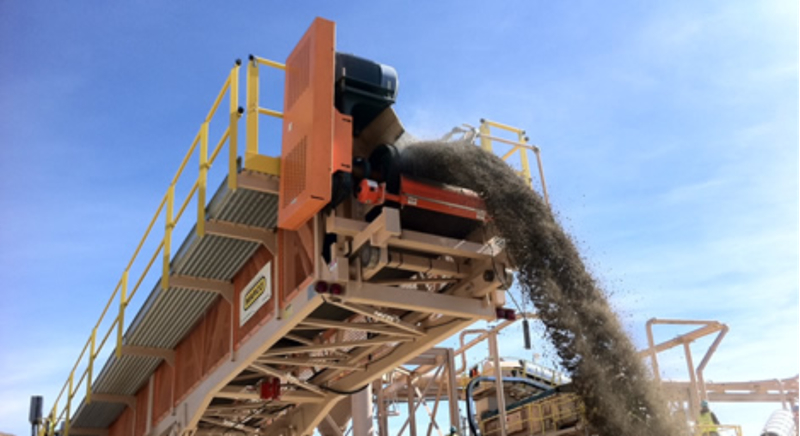The two-timing white knight of U.S. rare earth metals


Molycorp could still well be the white knight of the U.S. industry. But the shine has now came off its armor, as the company has struck a deal through which it will sell heaps of its rare earths to, get ready for it, China.
Yes, China, the same country that controls over 95 percent of the world's production of rare earths that are used in a raft of products too big to fully enumerate here: wind turbines, solar panels, batteries, magnets, radar, magnetic imaging, hybrid vehicles, flat screen TVs, catalytic converters, LCDs and missiles, just to name a few. Thorium, a substance that could provide safer nuclear fuel than uranium, occurs in monazite, a mineral that also contains 15 rare earths.
China imposes tight restrictions on rare earth exports, something that two weeks ago prompted the U.S, European Union and Japan to formally complain to the World Trade Organization. The Mountain Pass, Calif. mine that Molycorp reopened last month once provided most of the world's rare earths. It shut down years ago in part because of costly environmental requirements. China has over the years been more environmentally lax, leveraging that into world market domination. (China opposes the WTO action. It says that its export restrictions tie into its own efforts to now curb the environmental impact of rare earth mining and processing).
So when Molycorp officially restarted Mountain Pass in February, Americans could look forward to enterprising relief from China's grip, rather than simply rely on WTO maneuvers.
But Molycorp itself turned toward the Chinese market full tilt on March 8 when it acquired Neo Material Technologies, a Toronto company that processes already mined rare earths and sells them in large measure to customers in China and Japan.
"This transaction brings to Molycorp Neo's direct operating and sales channel in China, the world's largest and fastest growing rare earth consuming nation," Molycorp said in announcing its $1.3 billion (Canadian, also $1.3 billion U.S.) acquisition of Neo. "In 2010 and 2011, Neo Materials' sales to China and Japan, collectively, accounted for approximately 68 percent and 64 percent of sales, respectively."
That stinks according to some people in the industry, such as Jim Kennedy, CEO of St. Louis mining, rare earth and thorium company ThREEM3, which has rights to the rare earth byproducts from the Pea Ridge iron ore mine that is reopening near Sullivan, Mo.
In an email exchange with SmartPlanet, Kennedy notes, "As you know by now, Molycorp will be sending its rare earths to China. Shareholders, the public and Congress were played for fools... Neo is a purchasing agent for the Chinese refineries (an agent of China)."
Kennedy says that China "controls" Molycorp because the country is such a strong, important customer that it will set the market and prices. "And most of the capital was provided by U.S. investors," Kennedy adds. He cautions that China could eventually comply with the West by flooding foreign markets with less valuable rare earths - there are a total of 17 - and retaining the precious ones.
In fairness to Molycorp, companies in most industries routinely sell to China these days. Molycorp CEO Mark Smith noted in the press release that the Neo acquisition, "Enhances our mine-to-magnets vision and places Molycorp in all steps of the vertical rare earth supply chain, reaching many new customer segments across the globe."
The acquisition also made sense from a shareholder perspective. In a Bloomberg article, analysts noted that Molycorp got Neo for a good price, and that the strategic acquisition should help boost Molycorp's share price. For all the controversy surrounding Chinese control, the price of rare earths has been falling amid reduced demand in the slow global economy. That has suppressed Molycorp's stock, the article notes.
And Molycorp hasn't said it won't sell to the U.S.
Why should Molycorp be any different from, say, Apple, Hewlett-Packard, General Motors or ExxonMobil in pursuing markets all over the world? One difference, of course, is that China has not dominated the global markets that any of those other companies serve. Your thoughts welcomed below.
Crusher photo from Molycorp website. Rare earth flag photo from CBS Moneywatch.
More rare earthlings on SmartPlanet:
- U.S., allies seek China's rare earths resolution
- America's only rare earth metals mine gears up
- Toyota breaks out of China’s rare earth shackles
- Watch replay of nuclear's future, with dash of rare earth, political intrigue
- Why safe nuclear will rely on rare earth minerals
- America’s rare earth independence
- Largest rare-earth metal mine in U.S. back open for business
- An LED rarity
This post was originally published on Smartplanet.com